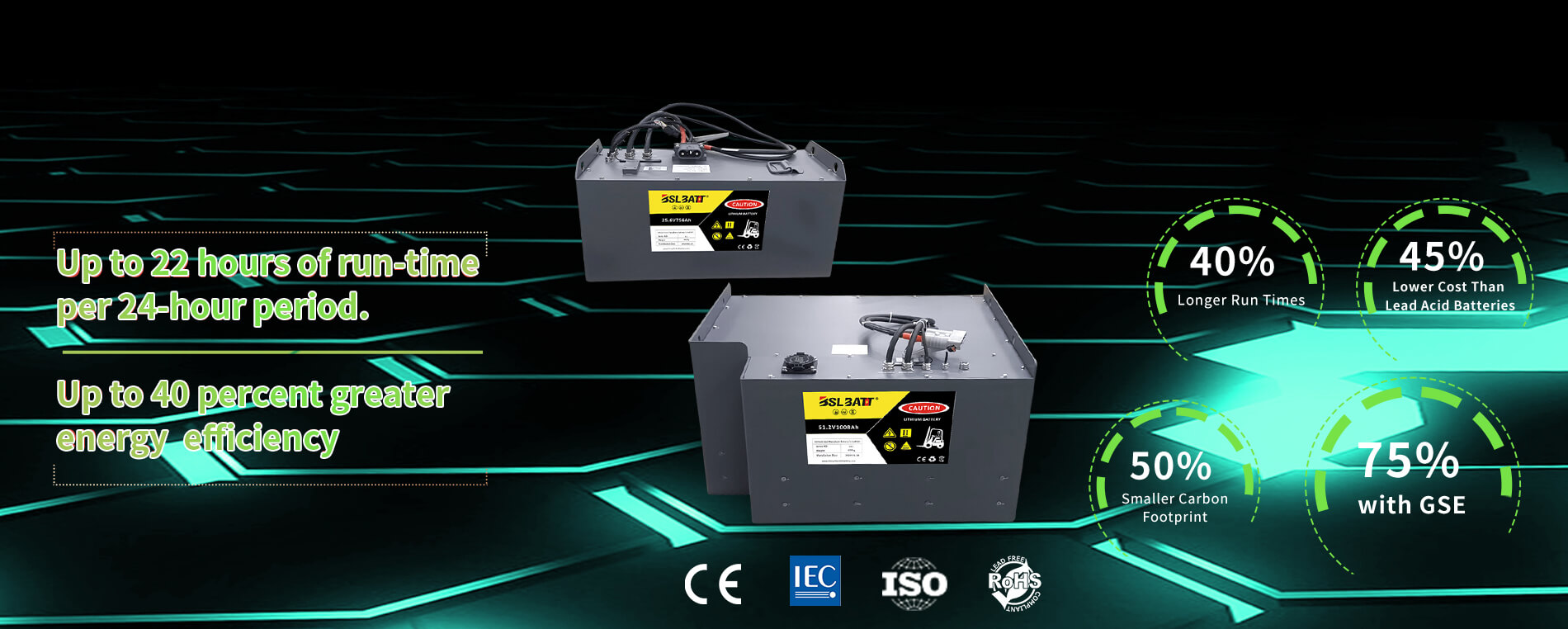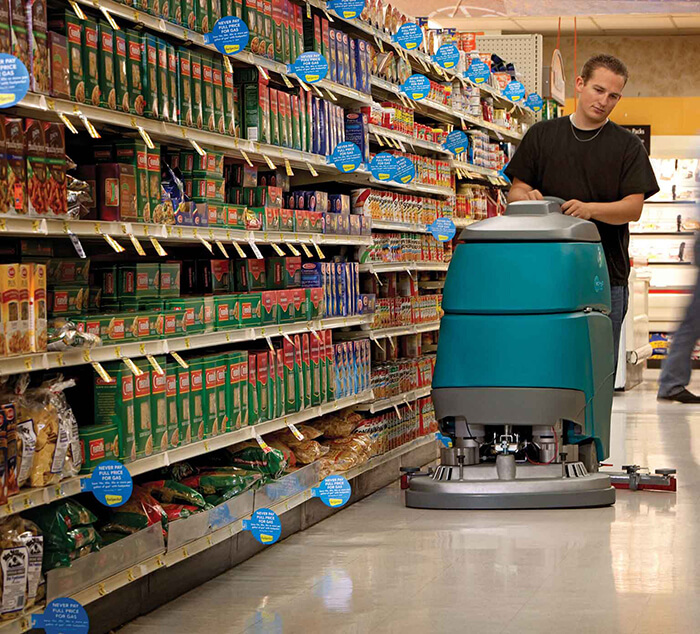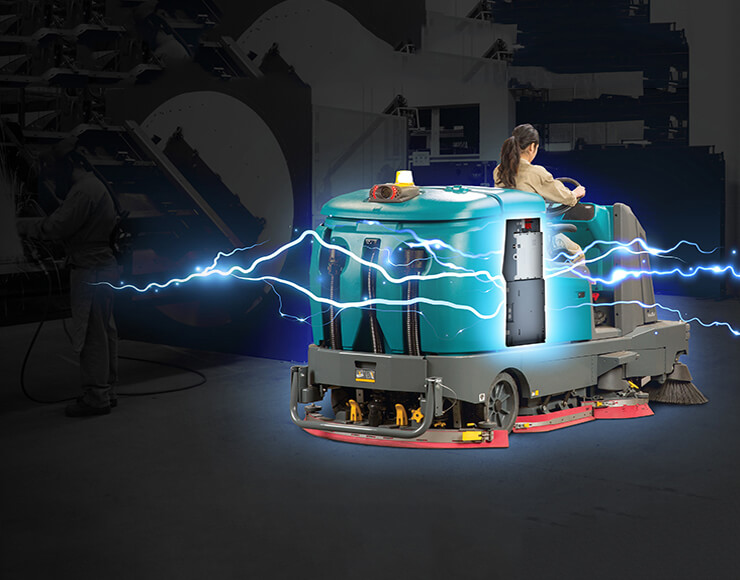
The lead-acid battery has long been used to power a variety of machines that have been developed in various sectors and are used for both professional and personal purposes. The lead-acid battery was developed in 1859 by the French physicist Gaston Planté and is the first rechargeable battery. To date, it is one of the most accessible batteries. The use of lead-acid batteries is no different in a cleaning industry that has been supplying their small and large machines with technology for years. Deep cycle lead-acid batteries, such as flooded absorbent glass mats or gel molds, which are sealed batteries, are good choices for washer dryers and floor sweepers.
Despite its history and widespread use, lead-acid is facing increasing competition from a type of battery that is becoming increasingly popular in the cleaning sector: lithium ions. Like lead-acid, lithium-ion batteries are available in various chemicals and cell structures. The three most popular cell structures are cylindrical, prismatic and packaged. Despite the variety of chemicals available, lithium phosphate and lithium nickel manganese cobalt oxide were most commonly cited for this article.

Lithium-Ion Batteries
Lithium nickel manganese cobalt oxide is a chemical that is commonly found in power tools and electric vehicles. Low resistance and thermal stability make lithium iron phosphate a safe chemical. Lithium iron phosphate batteries guarantee a long service life, making them the most economical lithium solution for battery life. The future of lithium iron phosphate in the cleaning industry could lie with floor machines such as those used in golf carts, floor machines, recreational vehicles, boats, and more. Stable lithium iron phosphate is also widely used in electric vehicles.
Lithium-ion technology has mainly entered the Jan/San sector as a power source for batteries and vertical vacuum cleaners. There are other applications through which lithium ions could increase their presence in the industry in the future. Battery manufacturers believe that they and their colleagues, together with the OEMs of the products, will decide which type of battery to use for the products, e.g. an auto scrubber. In the event that this scenario is reproduced, the end-user will not have a trash can when selecting their own lithium-ion battery.
The end-user is unlikely to be able to choose between the different types of lithium. Experts believe that OEMs often offer acid-lead and lithium-ion versions of the machines they manufacture. The OEM engineers and selected lithium distributors determine which battery chemistry is used for the latest products. However, the end-user can decide which battery chemistry is desired for existing aftermarket devices in situations where lead-acid or lithium-ion batteries are replaced. When you replace lead-acid batteries, lithium iron phosphate is easiest because the charging voltages are in the same range. Performance, price, safety, and quality would also be a factor when choosing between lead-acid or lithium-ion or two different lithium-ion chemicals. If you are looking for a reliable LiFePO4 battery manufacturer, we suggest that you check out https://www.lithiumforkliftbattery.com.
Electric floor cleaning machines
According to Delta-Q Technologies, a lithium-ion battery is four times lighter and three times smaller than its lead-acid counterpart. Battery manufacturers say this advantage has helped lithium ions find a place in a part of the cleaning industry where weight is very important: vacuum cleaners. The advantages of cordless vacuum cleaners and backpack vacuum cleaners are well documented. The absence of the cable not only saves time because disconnection is no longer necessary but also reduces the risk of injury because tripping over the cable is no longer a problem. However, pressing or charging a vacuum cleaner with a heavy battery also harbors the risk of injury.
The expert claims that lithium ions first get into the industry through vacuum cleaners. The reason for this is probably the lower weight than lead-acid and the reduction in the stress on the back of a caretaker. There is no equal impulse to install lithium-ion batteries in floor units because the weight gain of lead-acid is not a problem. The OEM’s decision to enter Jan/San this way is based on cost. By testing smaller batteries first, users can see how lithium ions work before investing in more expensive batteries that run larger machines. Battery manufacturers hope that lithium-ion batteries will soon hit larger ground machines.

Lithium-Ion Batteries
Many OEMs want to use lithium for larger machines in the near future, but as far as I know, they haven’t tested it yet. An OEM recently asked a battery manufacturer about a lithium iron phosphate battery for a polisher. End-users choose lithium-ion as an alternative to lead-acid when it comes to powering floor machines. The lowest total cost of ownership represented by lithium ions will ultimately be the quality that will convince people. All of these advantages seem to be some of the main reasons why battery manufacturers believe the change will happen.
Anything that becomes uncomfortable due to the extension cord or weight can use lithium ions. Iron and lithium phosphate, in particular, should find a place for any power application based on lead-acid due to the total cost of ownership and chemical performance. We hope to see the most used lithium-ion batteries for cleaning machines in 2020-2021 based on the conversations we are having.
